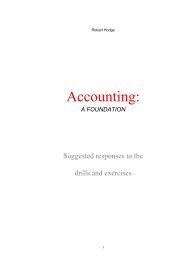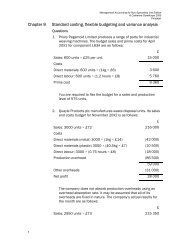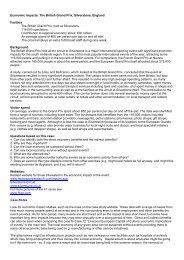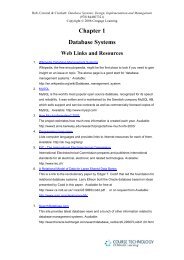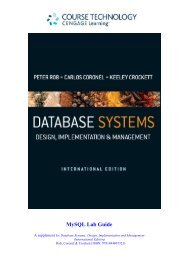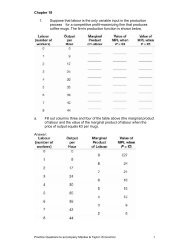CHAPTER Recruiting and selecting staff for international assignments
CHAPTER Recruiting and selecting staff for international assignments
CHAPTER Recruiting and selecting staff for international assignments
- No tags were found...
Create successful ePaper yourself
Turn your PDF publications into a flip-book with our unique Google optimized e-Paper software.
31017_05_Ch05_p109-136.qxd 9/7/07 12:15 PM Page 128128 <strong>CHAPTER</strong> 5 RECRUITING AND SELECTING STAFFthe expatriate profile in Table 5-1, 27 per cent of expatriates were TCNs in the2005 GMAC survey. While cost containment remains a major driver of localization(that is, replacing expatriates with HCNs), <strong>staff</strong> availability is also a factor. 60Reflecting this global trend, the impact of the accompanying spouse/partner’scareer orientation upon the <strong>international</strong> assignment is an emerging area of research.It seems that career orientation not only affects the couple’s willingness tomove, but also may negatively affect per<strong>for</strong>mance <strong>and</strong> retention in the <strong>for</strong>eignlocation. 61 Some multinationals are endeavoring to come up with solutions to thedual-career challenge. These can be divided into two categories: finding alternativearrangements <strong>and</strong> making the <strong>assignments</strong> more ‘family-friendly’.Alternative assignment arrangementsThere are a number of alternative assignment arrangements that can be identifiedin <strong>international</strong> <strong>staff</strong>ing:Short-term <strong>assignments</strong>. In the ORC Worldwide 2002 survey, 72 per cent ofresponding firms used short-term <strong>assignments</strong> (compared with 26 per cent in a1996 ORC survey) as an alternative means of satisfying the <strong>international</strong> assignmentneed.Commuter <strong>assignments</strong> (sometimes referred to as ‘commuter marriages’). Thespouse may decide to remain in the home country, <strong>and</strong> the couple works out waysto maintain the relationship with the help of the firm. Alternatively, couples maymove to jobs in adjoining countries, or within the same geographical region tomake commuting (relationship-maintenance) easier. Multinationals often adjustcompensation benefits to fit with agreed arrangements. The ORC survey foundthat 46 per cent of responding firms had such arrangements (compared with19 per cent in 1996).Other arrangements.findings were:Other arrangements included in the ORC 2002 report● Unaccompanied <strong>assignments</strong> 50 %● Replacing <strong>assignments</strong> with business travel 57 %● Virtual <strong>assignments</strong> 16 %.Only 23 per cent of respondents in a similar study by ORC Worldwide in 1995reported the use of unaccompanied <strong>assignments</strong>.There has been little attention given to the advantages <strong>and</strong> disadvantages ofthese non-st<strong>and</strong>ard <strong>assignments</strong> in terms of the individual employees, theirspouses <strong>and</strong> the strategic objectives that prompt the use of <strong>international</strong> ratherthan local <strong>staff</strong>. While these arrangements may have short-term benefits in overcomingreluctance to move, how effective they will be in encouraging dual careercouples to accept <strong>international</strong> <strong>assignments</strong> over time is yet to be determined.Family-friendly policiesInter-company networking. Here the multinational attempts to place the accompanyingspouse or partner in a suitable job with another multinational – sometimes



